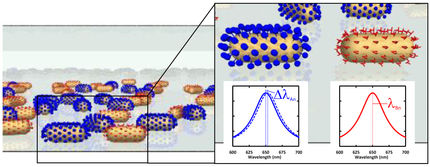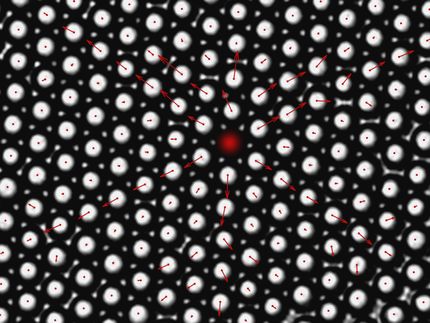The buzz on an amazing new mosquito repellent: Will it fly?
Advertisement
After searching for more than 50 years, scientists finally have discovered a number of new mosquito repellents that beat DEET, the gold standard for warding off those pesky, sometimes disease-carrying insects. The stuff seems like a dream come true. It makes mosquitoes buzz off three times longer than DEET, the active ingredient in many of today's bug repellents. It does not have the unpleasant odor of DEET. And it does not cause DEET's sticky-skin sensation.
But there's a fly in the ointment: The odds may be stacked against any of the new repellents finding a place on store shelves this year or next - or ever.
Ulrich Bernier, Ph.D., lead researcher for the repellent study, said the costly, time-consuming pre-market testing and approval process is a hurdle that will delay availability of the repellents, which were discovered last year. The results of his team's work were presented at the 238th National Meeting of the American Chemical Society (ACS) by Maia Tsikoli, Ph.D., a post-doctoral researcher working with Bernier.
"Commercial availability of topical repellents can take years and a significant investment to achieve that end goal," Bernier said. "The cost will be several hundred thousand dollars. Once you determine that the repellent works through some screening process, we then have to go through a toxicological hazard evaluation involving numerous toxicological tests."
Provided the repellents continue to work well when tested in the laboratory on human skin, and if they pass the battery of toxicological tests, they would still face a series of tests to prove their effectiveness in making mosquitoes bug off, Bernier said.
"Clearly, the odds are stacked against new repellent products making it to market," he noted.
Bernier and his team discovered the repellents with what they say is the first successful application of a computer model using the molecular structures of more than 30,000 chemical compounds tested as repellents over the last 60 years. Using 11 known compounds, they synthesized 23 new ones. Of those, 10 gave about 40 days protection, compared to 17.5 days for DEET, when a soaked cloth was worn by a human volunteer. When applied to the skin, however, DEET lasts about five hours.
Bernier routinely participates in repellency studies, which involve about 500 mosquitoes trying to land on his arm and bite through a repellent-soaked cloth. "If the mosquitoes don't even land, we know the repellent is surely working," he explained. "If they walk around on the cloth-covered-arm, they are on the verge of being repelled. If they bite… on to the next repellent."
Overall, in addition to lasting longer than current products, including DEET, the new repellents don't have the stickiness or unpleasant smell common with today's insect sprays and liquids, said Bernier. He said that extended studies are now evaluating the effectiveness of the repellents against flies and ticks.
"This was quite an ambitious project," Bernier said. "The USDA historical archives and repellents database we used consisted of more than 30,000 chemical structures tested over the past six decades."
To search for the best repellents, the team devised software that recognized structural features of a chemical that would make it effective in keeping the bugs away. They trained it by feeding it the molecular structures of 150 known repellents. Based on this information, the program learned to identify the chemical traits of a good repellent without the chemists even having to know what those traits were. For example, the team checked out 2,000 variants of a compound found in black pepper that repels insects.




























































